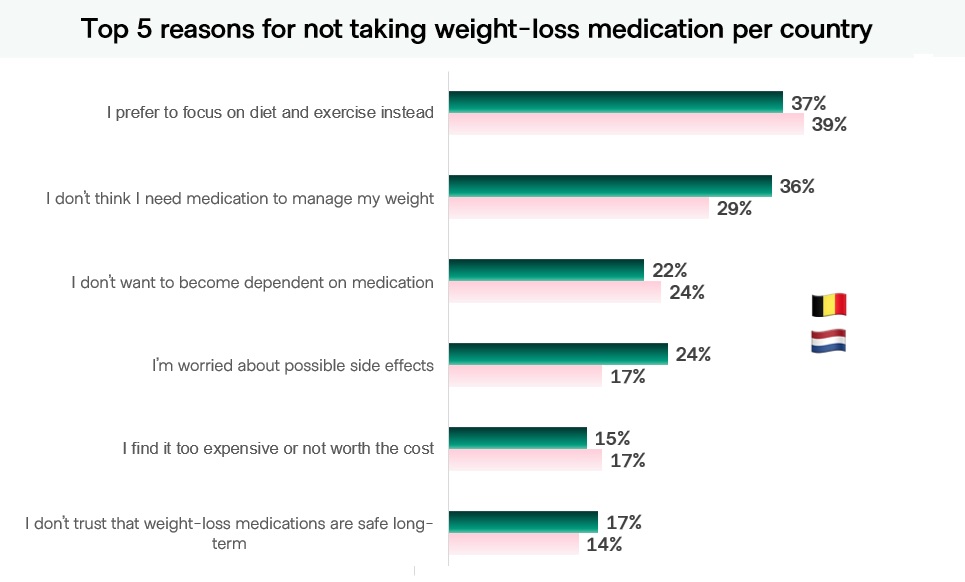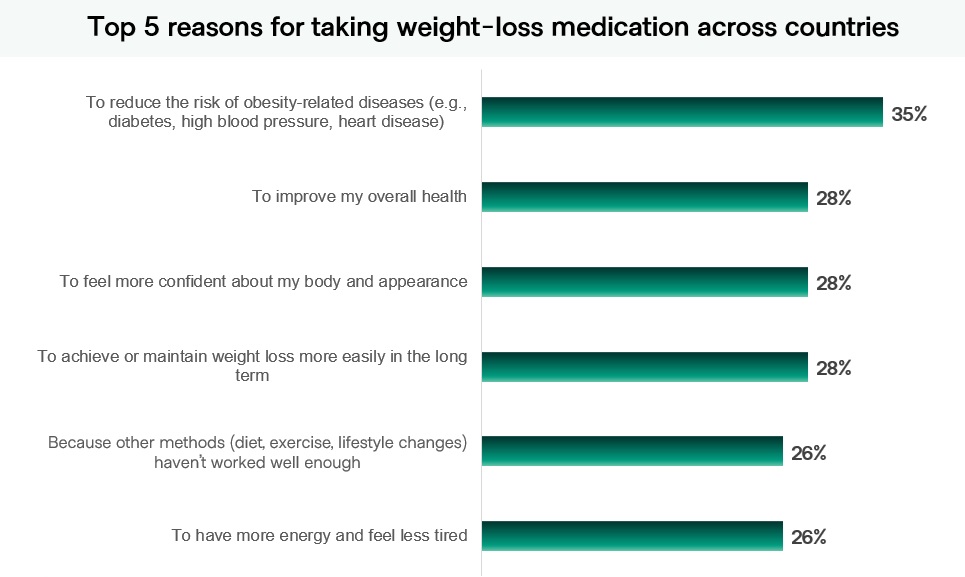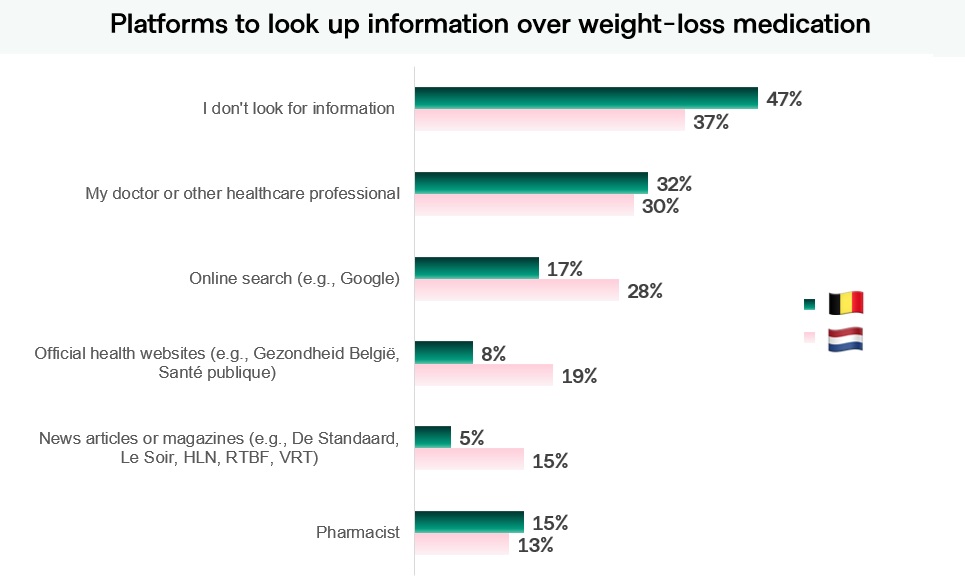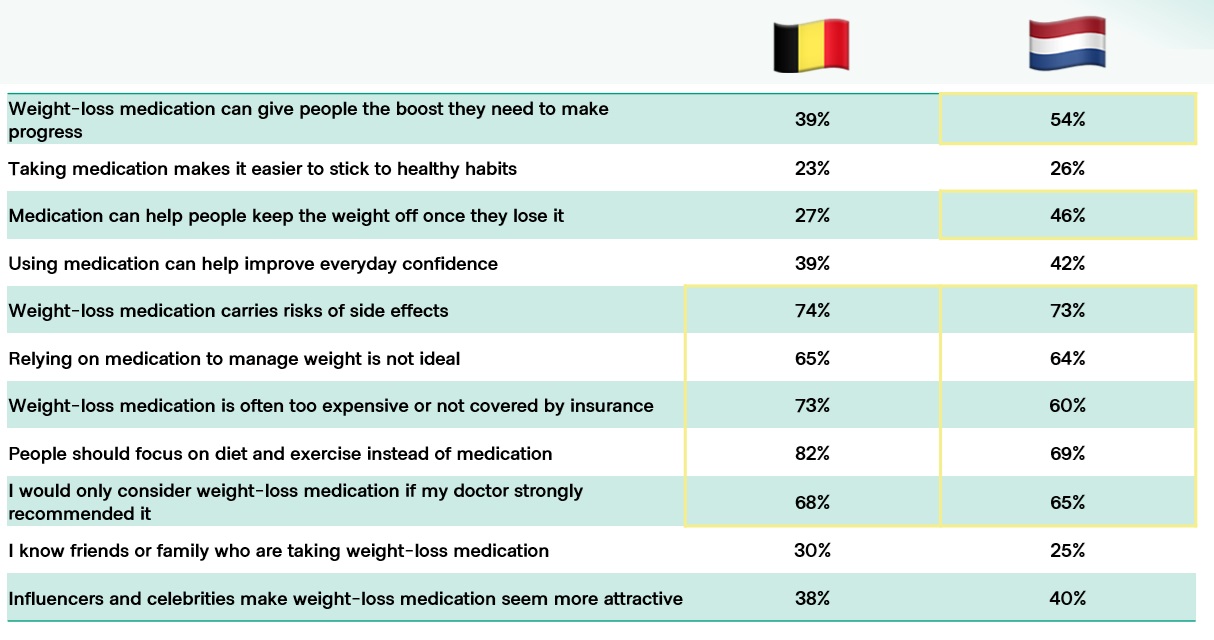From hype to health — what’s really behind the growing curiosity for weight-loss medication?
Interest in weight-loss medication is growing. From medical professionals to social media influencers, we hear about it more and more. But where does public opinion stand in Belgium and The Netherlands?



To find out, we ran a short study amongadults (18+) who are responsible or co-responsible for household purchases.
Growing interest, but limited use
Around one in four respondents in both countries are currently taking or planning to take weight-loss medication.
Today, the actual usage remains limited - only 8-9% are current users - but the idea is gaining traction, especially among adults under 50.

While curiosity is growing, most people simply don’t consider weight-loss medication.
The majority prefers to focus on diet and exercise or doesn’t feel they need medication to manage their weight.
Others mention concerns about dependency or possible side effects, especially among Belgian women.
This shows that for now, weight-loss medication is seen as a last-resort option, rather than a regular part of weight management.

Health first, not vanity
So what’s driving that curiosity?
Unlike what’s seen in the U.S., weight-loss medication in Europe is still far from mainstream. In Belgium and The Netherlands, most consumers only see weight loss medication as appropriate if it is needed for medical reasons. Taking it for lifestyle or cosmetic purposes is not deemed to be appropriate.
The main motivations for taking weight loss medication are health-related : preventing obesity-linked diseases such as diabetes or high blood pressure, improving overall wellbeing, and gaining confidence.
In terms of country differences, Dutch respondents are somewhat more motivated by practical results (“because other methods haven’t worked well” and “to maintain weight loss”), while Belgians emphasise the daily life advantage with energy, wellbeing and overall health.

In the same spirit of caution and focus on health, people mainly turn to healthcare professionals for information about weight-loss medication — followed by online search and pharmacists.

Between promise and prudence
Overall, attitudes remain pragmatic. In both countries, the majority are not interested in taking weight-loss medication — but in The Netherlands, optimism runs slightly higher. Over half agree that medication can “give people the boost they need,” and many believe it helps keep the weight off.
In Belgium, the mood is more careful — the focus is on cost, long-term risks, and the importance of diet and exercise.
Across both markets, most say they would only consider medication if strongly recommended by a doctor.

What’s next?
So how does the future of weight-loss medication look in our countries? Overall, weight-loss medication isn’t mainstream (yet) — but it’s entering the public conversation fast.
People see it less as a “shortcut” and more as an extra tool, to be used cautiously and ideally under medical supervision.
Curiosity is growing, but trust and reassurance will decide where it goes next. At Haystack Consutling, we constantly monitor consumption trends. Want to learn how you can play a role in this new health economy? Feel free to reach out to

Reach out to our expert on the matter









